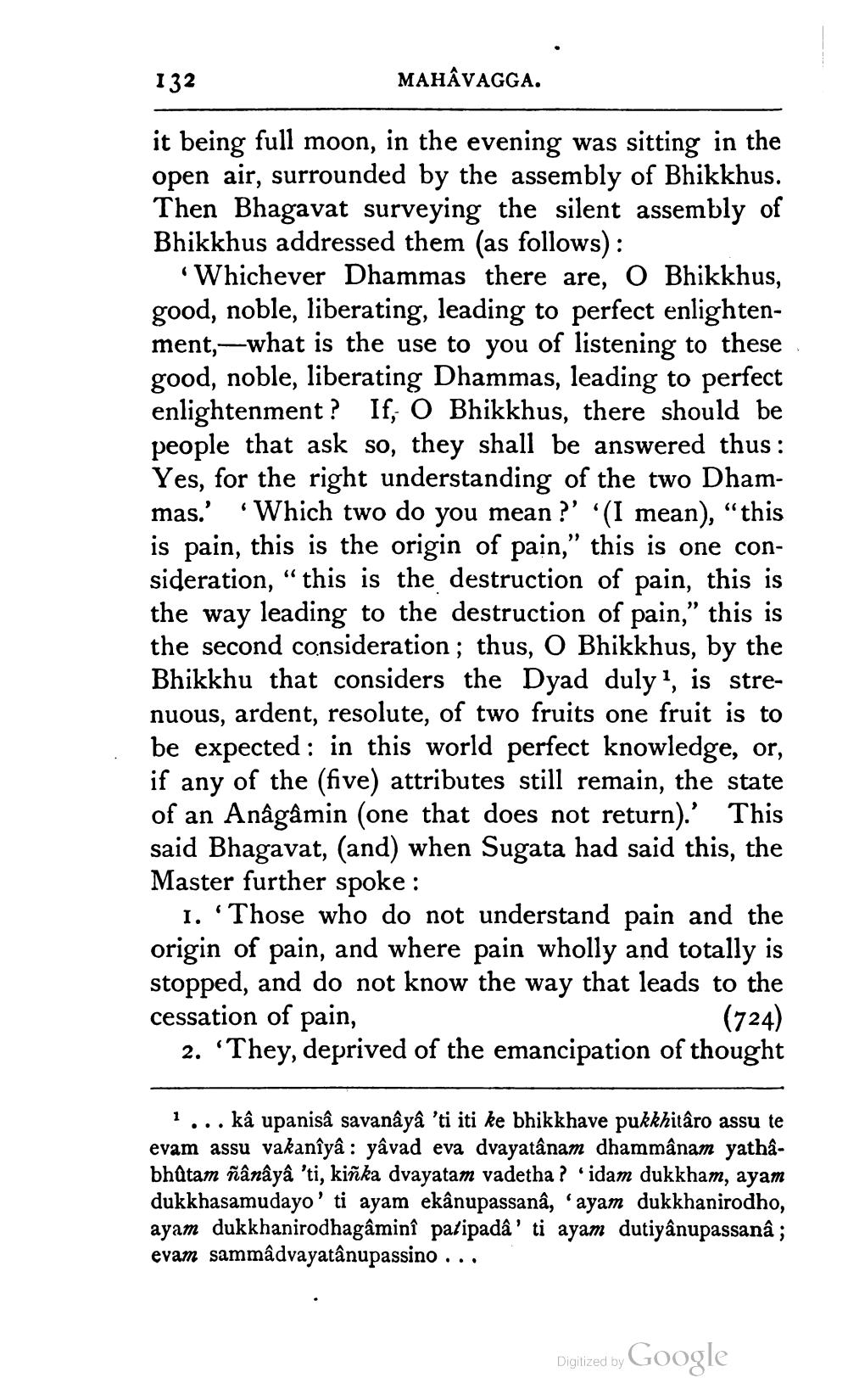________________
132
MAHẬVAGGA.
it being full moon, in the evening was sitting in the open air, surrounded by the assembly of Bhikkhus. Then Bhagavat surveying the silent assembly of Bhikkhus addressed them (as follows) :
Whichever Dhammas there are, O Bhikkhus, good, noble, liberating, leading to perfect enlightenment,—what is the use to you of listening to these good, noble, liberating Dhammas, leading to perfect enlightenment ? If, O Bhikkhus, there should be people that ask so, they shall be answered thus: Yes, for the right understanding of the two Dhammas.' 'Which two do you mean?' '(I mean), “this is pain, this is the origin of pain,” this is one consideration, “this is the destruction of pain, this is the way leading to the destruction of pain,” this is the second consideration ; thus, O Bhikkhus, by the Bhikkhu that considers the Dyad duly 1, is strenuous, ardent, resolute, of two fruits one fruit is to be expected : in this world perfect knowledge, or, if any of the (five) attributes still remain, the state of an Anâgâmin (one that does not return).' This said Bhagavat, (and) when Sugata had said this, the Master further spoke :
1. Those who do not understand pain and the origin of pain, and where pain wholly and totally is stopped, and do not know the way that leads to the cessation of pain,
(724) 2. “They, deprived of the emancipation of thought
1... kâ upanisâ savanâyâ 'ti iti ke bhikkhave pukkhitaro assu te evam assu vakanîyâ: yâvad eva dvayatânam dhammânam yathabhûtam ñânâyâ 'ti, kiñka dvayatam vadetha ? idam dukkham, ayam dukkhasamudayo' ti ayam ekânupassanâ, “ayam dukkhanirodho, ayam dukkhanirodhagâminî palipadâ' ti ayam dutiyânupassanâ; evam sammâdvayatânupassino ...
Digitized by Google




